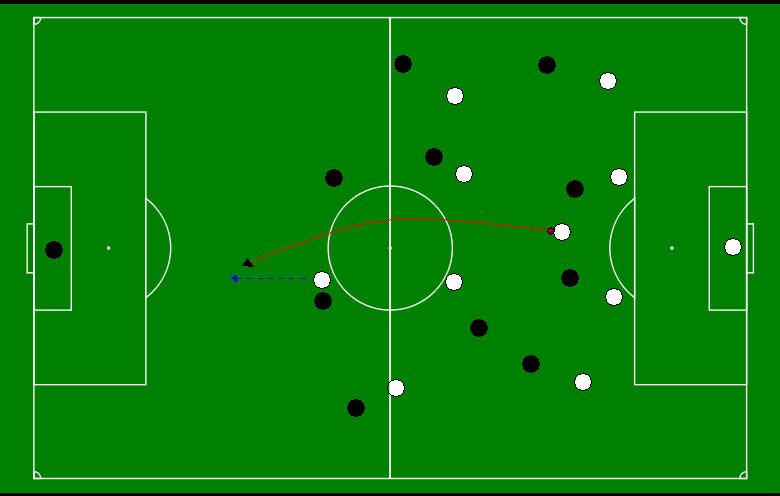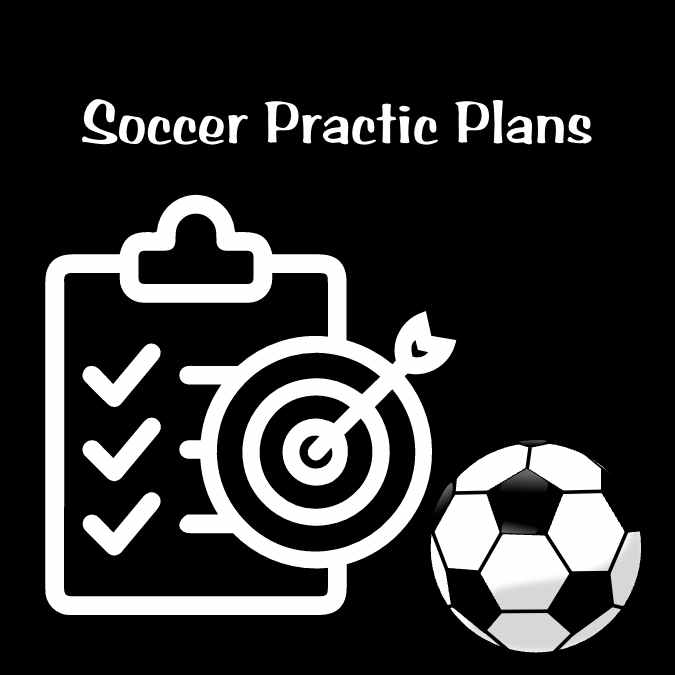Soccer Practice Plans

It's soccer season and you need some soccer practice plans to help you make this a successful season. Here you will find what makes a successful, fun, and simple plan.
First, let's look over the most common mistakes soccer coaches make.
- Coaches do too much in too little time. Ultimately, accomplishing very little.
- Coaches feel they need to design soccer plans around the most talented players.
- Coaches don't know what their age group should be accomplishing for their age.
- Coaches focus heavily on physical fitness instead of skill development.
- Coaches approach is not appropriate for the age group.
Let's take a look at each of these common mistakes
Now that we know some common mistakes coaches make in creating practice plans let's provide some insight to further understand the overall objective.
Coaches do too much in too little time. Ultimately, accomplishing very little.
Coaches may take more time setting up practice than scrimmage time. Rule of thump, it should not take you more time to set up practice than total scrimmage time. So if you scrimmage for 20 minutes setup should be no more than 20 minutes. It is better to focus on mastering a specific skill or drill rather than the number of drills. Kids develop through repetition not only physically but psychologically as well. Confidence building should always be an objective in soccer practice plans and repetition is key in achieving this. Familiarity is a child's best friend when learning something new. Yes. there will be the time to introduce new information but aim for familiarity over overcomplicated drills.
Coaches feel they need to design plans around the most talented on the team.The goal of a recreational league and even a competitive team under 12 years old is continuity and developing skill in accordance to milestones using the talented players as bench marks not pedestals. Keep the talented player humble or they will be hard to coach in the following years. Talented players may not be talented in terms of skill but physical ability. That is why you make sure all players reach milestones and master them. There could never be enough repetition and practice of the fundamentals. Also, if this player is good enough to play at a higher age group let them. Having an overload is part of the formation of a player and preventing a player from that is not good.
Coaches don't know what their age group should be accomplishing for their age. This mistake is very common and typically leads to all other common mistakes. Similar to a growing infant, youth soccer players have milestones they should reach by a certain age. Knowledge is power and knowing the milestones for your age group will make your role much easier. What age is your team and what is going on in their minds? Knowing the phase of development will make coaching so much easier and fun. Put yourself in their shoes and ask, What would I be interested in and what would motivate me?
Coaches focus heavily on physical fitness instead of skill development. This mistake in creating soccer plans directly relates to the lack of knowledge regarding to skill development and knowing what they should be teaching. Yes, soccer is a physically demanding sport but focusing on that alone will handicap players for years to come. At the initiation age I spend no more than 10-15 minutes without the ball. We need them to touch the ball at least 150-200 times during a practice. Physical fitness is for those who have little idea of what to do. Get a ball at their feet and nurture their relationship with the ball.
Coaches approach is not appropriate for the age group.You have seen that coach screaming at the top of his lungs at the 5 year old during games. Timing sprints at practice and teaching how to slide tackle at age 7. Knowing what is appropriate and how to deliver information effectively is key. Although, we can have our moments where we get overwhelmed, frustrated and even inappropriate. Know your audience and be the supportive coach that will make soccer fans for a lifetime. Of course, having age appropriate soccer practice plans will help prevent this. There are many types of overloads you can add but the one you want to stay away from as much as possible is an emotional overload. Now, there are times where it is necessary but seldom is the case. Kids are kids and the overload of fear and do as I say will not get you far.
- The Solution -
Soccer practice plans need to consist of practices that are uniform and repetitious. Most importantly they need to be simple in it's objective and the goal achievable 100%.
How to play soccer: Basic milestone overview by age
Basic Soccer Rules
Sample Soccer Practice Plan
